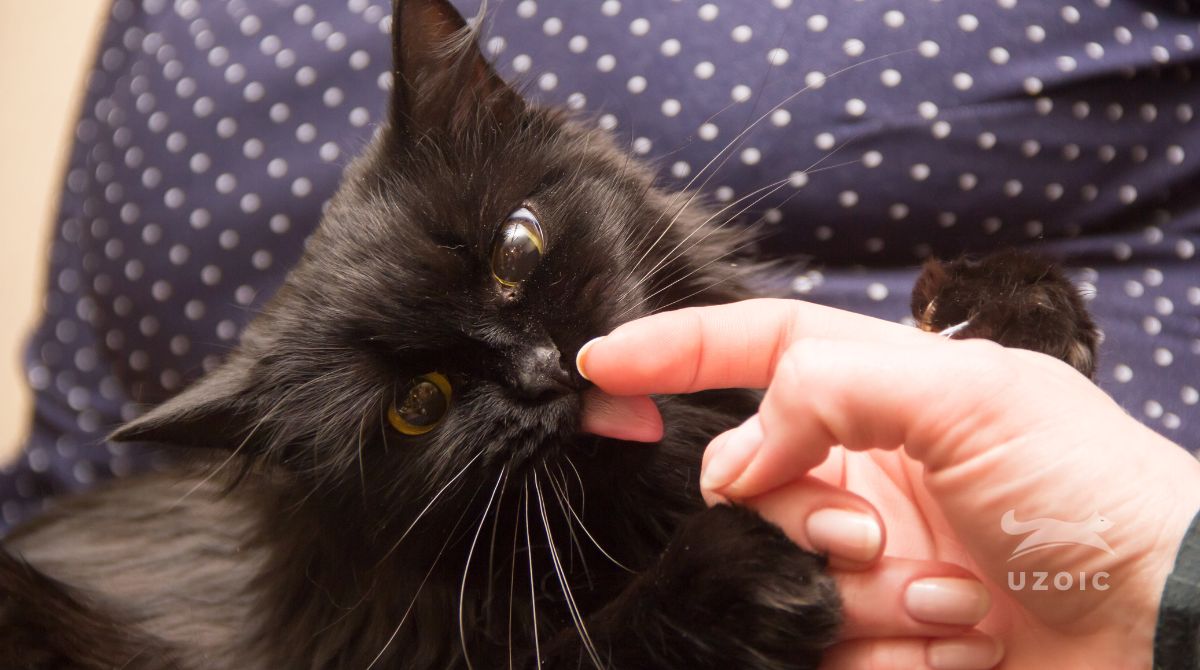As any cat owner can attest, feline behavior can sometimes be a puzzle. One such behavior that often leaves owners curious, if not slightly exasperated, is when their beloved feline friend starts to lick them. Here we’ll delve into the underlying reasons and decode this peculiar aspect of cat behavior.
Table of Contents
1. Affection and Bonding:
Social Grooming: Cats groom each other, a behavior called “allogrooming,” as a social bonding mechanism. When your cat licks you, it’s extending this form of social interaction. It’s a gesture of camaraderie and familial bond.
2. Comfort and Stress Relief:
Cats derive comfort from the act of grooming. Just as some people might bite their nails or twirl their hair when anxious, cats may lick as a self-soothing behavior. When your cat licks you, it’s potentially tapping into this innate comfort mechanism.
3. Marking Territory:
Cats have scent glands on their cheeks. By licking and rubbing against you, they’re marking you as their territory. You’re essentially being branded as part of their group, and they’re signaling to other cats that you’re ‘taken’.
4. Taste:
Sometimes the simplest explanation is the most plausible one. Perhaps you’ve just applied a lotion or you’ve been sweating, and your cat is intrigued by the taste. In some cases, the residual taste of food or something sweet might attract your feline friend’s tongue.
5. Maternal Instinct:
If you’ve ever observed a mother cat with her kittens, you’ll notice she incessantly licks them. This is not only to keep them clean but also to bond with them. Adult cats might extend this maternal behavior to their human owners, especially if the bond is strong.
6. Health Check:
Licking can sometimes be a way for cats to check on your health. Salty sweat might indicate to your cat that you’re stressed or not well. Your cat might lick more frequently if it senses something is off.
7. Mimicking Behavior:
Kittens learn by mimicking the behavior of their mothers. If a kitten is separated from its mother early on and is raised by humans, it may “groom” its human caregivers as it would its feline mother.
8. Attention Seeking:
Like many of their behaviors, cats may simply lick you to get your attention. Whether they’re hungry, want to play, or simply want to be petted, licking is an effective way to communicate their needs.
Things to Consider:
While the occasional lick is perfectly normal and even endearing, excessive licking can be indicative of issues. If your cat suddenly starts licking you or itself more than usual, it might be a sign of underlying health issues, skin problems, or stress. In such cases, a visit to the vet is recommended.
It’s also important to be cautious if you have creams or ointments on your skin. Some may be harmful if ingested by your feline friend.
In Conclusion:
A cat’s lick is multi-faceted in its meaning. Whether a gesture of love, a sign of ownership, or just a quick taste test, it’s a part of what makes cats such enigmatic and charming creatures. Understanding this behavior helps us bond even closer with our feline companions. If you’re a proud recipient of your cat’s licks, rest assured that in their unique way, they’re communicating their affection and trust in you.


